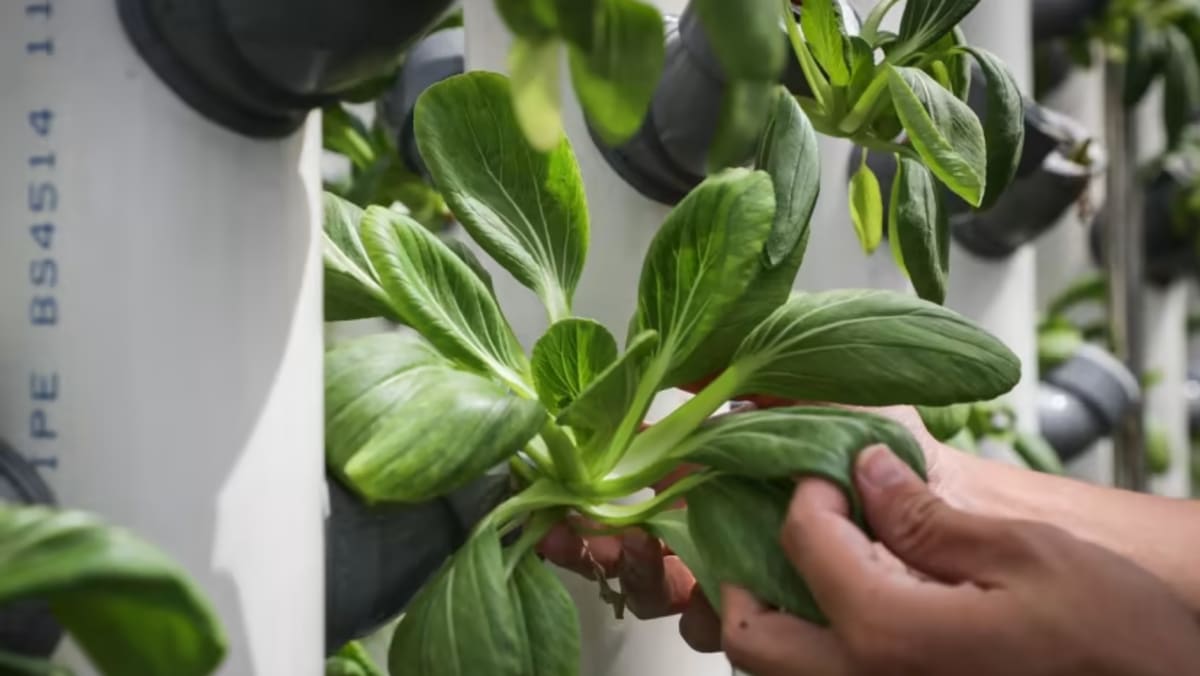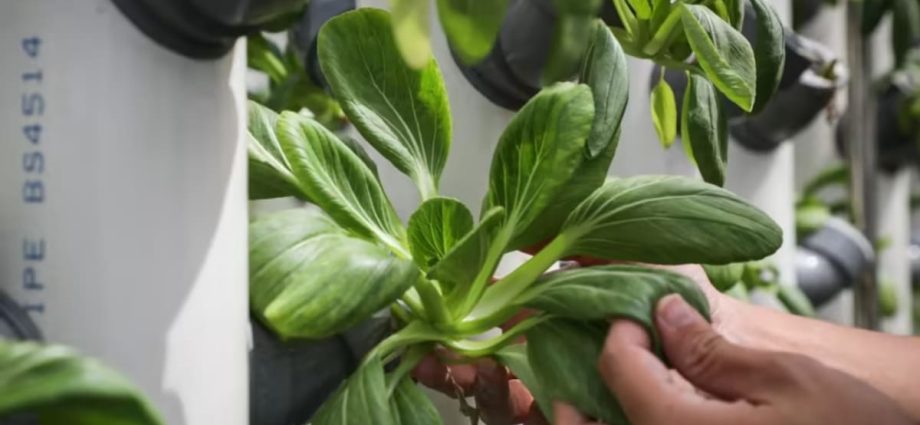
Mr Tan of Blue Ocean Harvest said that since 2021, Blue Ocean Group has established three food and beverage outlets specialising in Chinese cuisine, particularly fish soup, which uses fish harvested from the farm.
Mr Nicholas Goh, founder of Nature’s International Commodity, said that it “makes little sense” to push their products to local supermarkets in a competitive environment.
So the company provides monthly and yearly membership subscriptions which include a weekly package of fresh vegetables and tours on its farm.
“By doing this and maintaining a good standard of quality of our products, we also raise awareness of quality produce and the importance of food security,” he said.
“We currently have 150 regular monthly subscribers, but our farm has the capacity to handle 250 so we hope to get more consumers to sign up.”
Tomato Town’s managing director, Mr Webster Tham, says that the farm diversifies its sales by selling to local supermarkets and directly to local restaurants.
“Demand has been good for us in general, and our consumers have been supportive of us, mainly because our products are fresh and free from pesticides and preservatives,” said Mr Tham.
This pitch of local produce being fresher and of higher quality also helps food producers target eateries here that bank on a “farm-to-table” concept to attract customers seeking an authentic experience of having fresh, local produce on their plate.
Quality is a major push factor for sourcing produce locally for some establishments, such as Resorts World Sentosa (RWS), a recipient of SFA’s highest tier Farm-To-Table Recognition Programme.
The programme, which was launched in March, awards a recognition logo to hotels, restaurants and catering establishments that procure at least 15 per cent of local produce in dollar value, for the food categories of hen shell eggs, leafy vegetables, beansprouts, or fish.
The award is tiered depending on the number of food categories that the establishments procure from local farms.
RWS senior vice-president of attractions and sustainability Loh Su Kim said it procures more than 45 tonnes of local produce annually, including fresh eggs, leafy vegetables, beansprouts, and barramundi.
“This ensures maximum freshness of the ingredients — which enhances the quality of our culinary creations for guests.”
The Local Farm Bistro by Gardenasia is another recipient of SFA’s highest tier Farm-To-Table recognition logo, and procures all its vegetables, eggs and fishes completely from local farms.
Gardenasia consultant Karen Pang said: “Even though imported produce cost less, we choose to procure our produce from local farms where possible because we believe in fostering a resilient and vibrant local food system.”
While such farm-to-table initiatives are laudable, the farmers interviewed said that they are not enough to move the needle to address their main problems.
“We need more public education on buying local produce to boost local demand, which is lacking,” said Mr Hay.
“The public and private sector should also take the lead by choosing local over imported produce to drive home the message that no country can survive without its own food supply.”
This article was originally published in TODAY.

